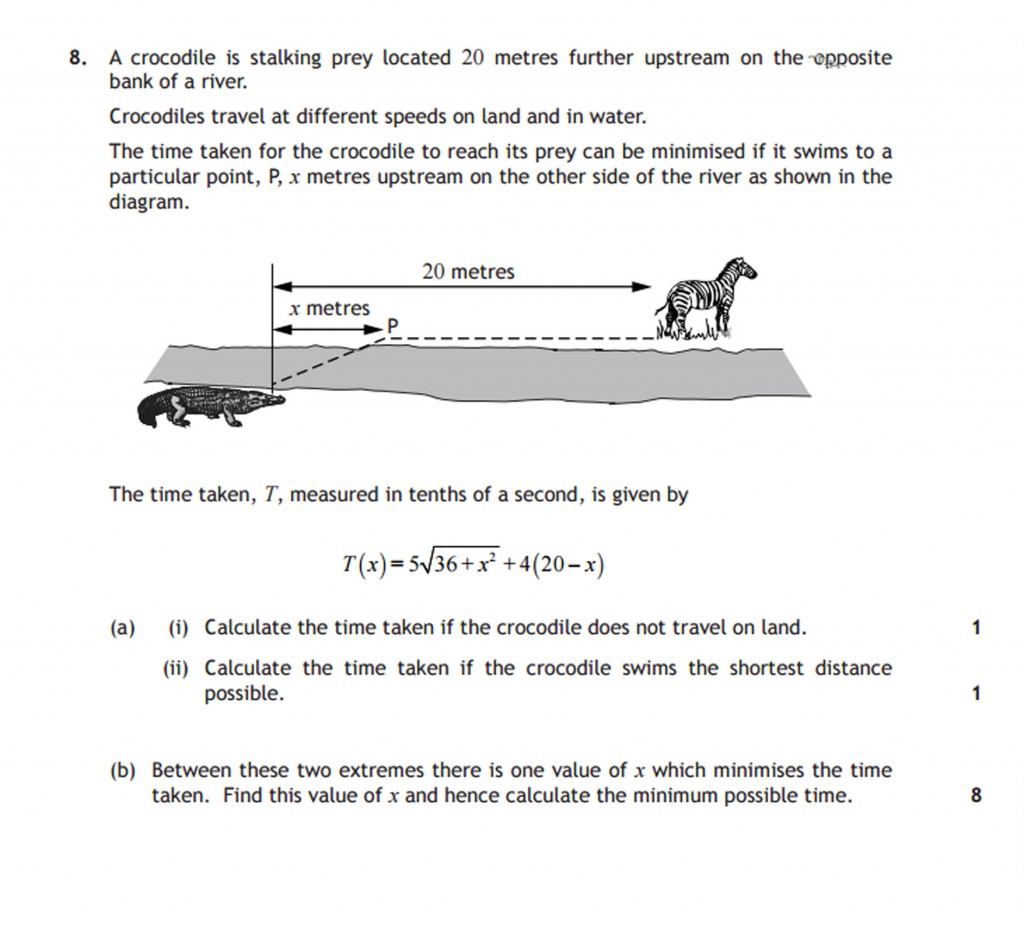A NEW report has revealed the higher maths exam question so hard that it reduced maths higher students to tears last May – forcing examiners to drop the pass mark to just 34%.
Students and parents were up in arms last Spring over the difficulty of THE higher maths exam – with many fearing that it would affect their university applications.
In the wake of the exam Scottish Qualification Authority (SQA) officials admitted that the paper had been unduly difficult, and promised to adjust the pass rate accordingly.
now a report from the SQA has revealed the single bamboozling question which tripped up countless exam-takers.
A report released today by the principal external assessor has revealed that the notorious crocodile question in paper two was a key contributor to the exam’s difficulty.

The question asks those taking the exam to calculate the time taken for a crocodile to reach a zebra it is stalking by using a complex formula to measure its speed on land and in water.
Regarding the second paper – which contained the notorious crocodile question – the report had overwhelmingly positive comments on students’ performance for most questions.
According to the assessor most of the nine questions in the exam were “well executed” and “well done.”
The only negative comment on student performance in the paper came in question eight, which the assessor noted: “proved to be challenging for most candidates.”
Following the exam students, teachers and parents took to social media to express their outrage at the exam and a petition was launched, demanding that the Scottish government intervene.
And after the furore the SQA confirmed that they would radically lower the bar to allow students a fair chance at a pass grade.
Jim Reid – who set the higher exam up until 2012 – said: “Given the checks and balances that are in place, at a very early stage alarms bells should have been ringing regarding the paper.
“The Higher maths setting team that walked away in 2012 had between them over 300 years of experience. You were talking lots and lots of experienced people who at the one time, en masse, walked away.”
“My main concern is at what stage did somebody raise a red flag and say ‘this isn’t proper’.
“If we get to the stage where the exam is sat on the 18th May and that red flag isn’t flown then something has gone seriously wrong at SQA – maybe a lack of experience, maybe producing the paper in too short a time scale.”
Mr Reid added that he had seen the pass rates for the exam going back to the 1960s but had never seen a pass rate set as low as 34%.
He went on: “To reduce it to that level really says the paper was unfit for purpose.”
Speaking about the release of the report Dr Gill Stewart, SQA director of qualifications development said: “As we do every year, we consider what went well in the most recent diet, and where we need to make improvements for the future.
“Our external assessment and course reports, which are provided for all subjects at all levels, also highlight ways in which recent exams and coursework may have differed from those of previous years.
“This is to ensure standards remain high. We are committed to the continuous development and improvement of our qualifications and assessments for the benefit of all candidates.”

